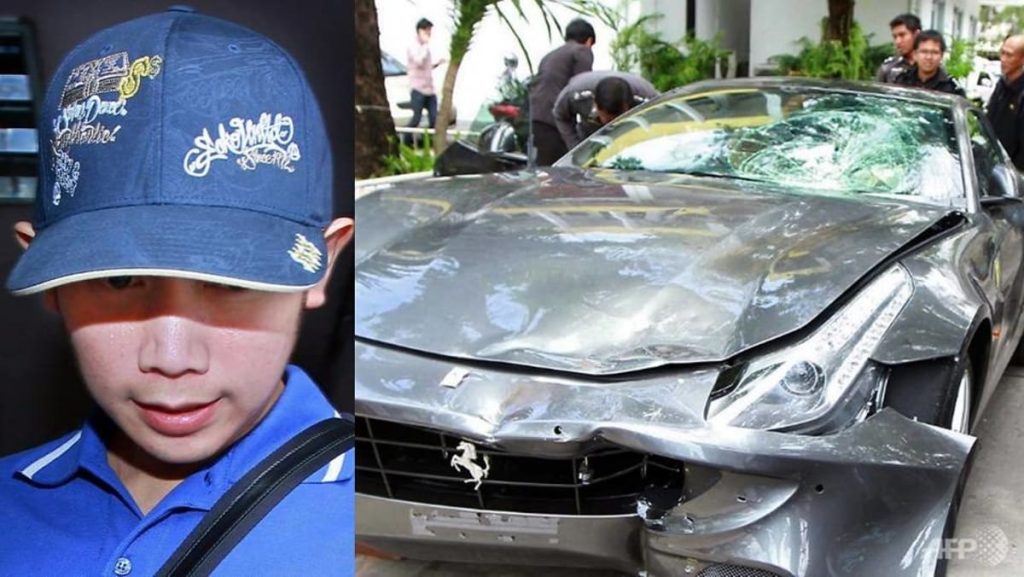During a hearing in Bangkok, former national police chief General Somyot Poompanmoung and several others denied charges of evidence-tampering in relation to a deadly hit-and-run crash involving Vorayuth “Boss” Yoovidhya, the heir to the Red Bull fortune. The incident occurred more than a decade ago, in 2012, when Yoovidhya was accused of crashing his Ferrari into a policeman’s motorbike, resulting in the officer’s death. This marks the first time that individuals have appeared in court on charges tied to the crash, which has garnered significant public attention in Thailand. Critics view the case as a symbol of the perceived impunity enjoyed by the country’s wealthy and powerful individuals.
Vorayuth Yoovidhya was originally charged with causing death by reckless driving and possessing illegal substances following the crash. However, he managed to evade prosecutors and left Thailand shortly after the incident, only returning to the country last year. The involvement of prominent figures such as General Somyot Poompanmoung and a former deputy attorney general adds another layer of complexity to the case. The denial of charges by these individuals suggests a staunch defense against allegations of malfeasance and cover-up. The hearing witnessed a strong denial of any wrongdoing, signaling a potentially protracted legal battle ahead.
The high-profile nature of this case has placed a spotlight on issues surrounding justice, accountability, and the privileged status of the elite in Thai society. For many observers, the delayed proceedings and the ability of Yoovidhya to avoid facing charges for an extended period have raised questions about the fairness of the legal system. The public’s interest in the case reflects broader concerns about inequality and impunity, as well as the perceived influence of wealth and connections in shaping legal outcomes. The involvement of high-ranking officials further fuels suspicions of corruption and favoritism.
As the legal process unfolds, there is a sense of anticipation regarding the eventual outcome and whether justice will be served in this long-standing case. The denial of charges by individuals such as General Somyot Poompanmoung underscores the complexities and tensions surrounding the investigation and prosecution of crimes involving powerful individuals. The case serves as a litmus test for the Thai legal system’s ability to address issues of accountability and fairness, particularly in cases involving individuals with significant resources and influence. The public’s ongoing scrutiny of the proceedings reflects a broader desire for transparency and integrity in the country’s judicial processes.
Moving forward, the legal battle over the hit-and-run crash involving Vorayuth Yoovidhya is likely to remain a focal point of public attention and scrutiny in Thailand. The case serves as a potent symbol of the challenges faced in holding the wealthy and well-connected accountable for their actions. The involvement of individuals at the highest levels of the police force and the judiciary adds a layer of complexity to the proceedings, underscoring the broader issues of transparency and integrity in the legal system. As the case continues to unfold, it will test the willingness of the authorities to pursue justice in the face of powerful interests, and the extent to which the legal system can truly deliver accountability for all individuals, regardless of their status or influence.


